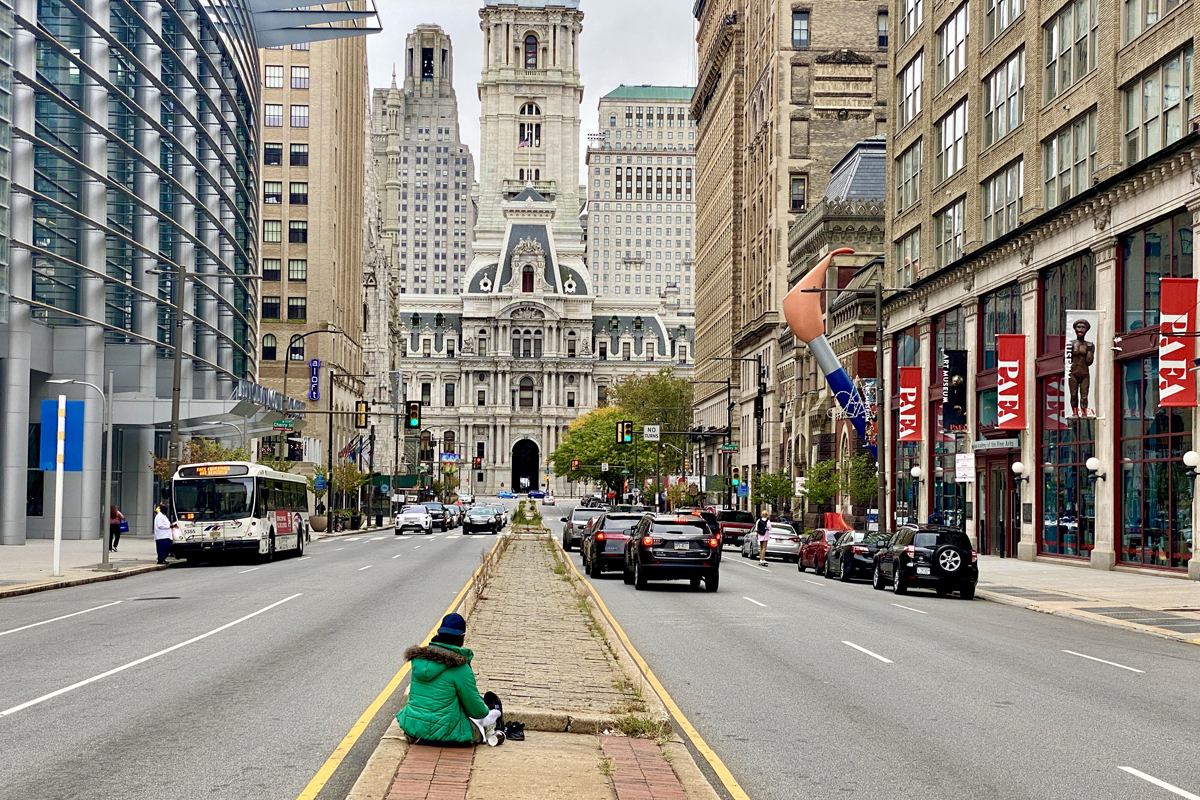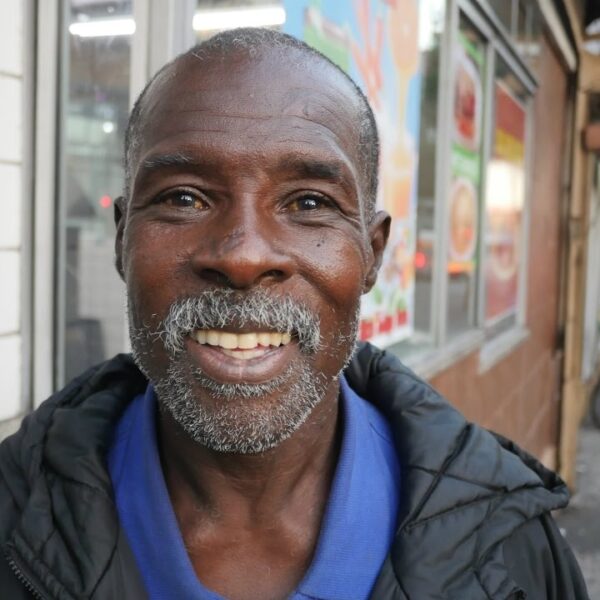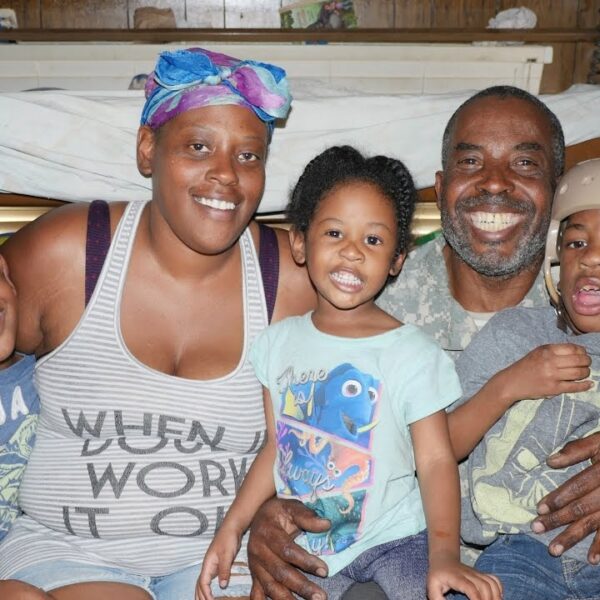Imagine yourself in the following hypothetical scenario…
You’re careening over a poorly paved road beneath a polluted gunmetal gray sky on your way to the drug store when all of a sudden you run smack dab into a pothole blowing your left tire out immediately. It’s one of those sharp punctures, not even a slow leak you could patch. You clamber out on foot, murmuring under your breath, pulling your sick toddler from the back seat, and walking the rest of the way.
You finally arrive at the urgent care fifteen minutes late for your appointment. The doctor is wholly overwhelmed with patients – too busy to look at your child whose illness is growing worse by the minute. Begrudgingly, you pull some homeopathic remedies from the shelves and find that even the off-brands are overpriced.
“Had to pay for the fancy new surveillance system to keep the undesirables away,” the store clerk explains as you grimace at the high prices.
You only have a few dollars on you after purchasing the over-the-counter pharmaceuticals. You look at your sick toddler and shake your head, deciding to take the bus to the nearest emergency room, just in case.
Upon arrival, you find the ER is overcrowded, and your copay is through the roof. You’ll have to wait half the day before your child is seen if you can even afford to do so.
You scan the room. Every face is like staring into a mirror. The people all look worn out, tired, and aloof. One by one, they avoid your stare, swirling their heads in the opposite direction. Perhaps they’ve all had the day that you’ve had, the one that’s shaping up to be legendarily bad. But are you really just having a bad day? Or is there another, more profound explanation for these seemingly unconnected misfortunes?
All of the Problems Listed Above Are Caused by the Existence of Homelessness
We like to think about homelessness as an individual problem. This couldn’t be further from the truth. Whether you acknowledge this or not, the fact that more than half a million people are enduring the harsh state of living unhoused is adversely affecting you. On a communal level, homelessness is adversely affecting us all.
Take the above-listed scenario, which started with a sick toddler. Did you know that homelessness negatively impacts public health, causing infectious diseases to be rapidly passed throughout communities? In fact, this issue is so severe that in some extreme cases, formerly formidable diseases reemerge due to the overcrowding of street corners and homeless shelters. Just because you can’t see germs and viruses passing through the air doesn’t mean they’re not impacting public health.
In the same vein, just because you can’t visibly see your tax dollars being filtered from other sectors into the criminalization of homelessness and poverty, an action that doesn’t benefit anyone other than private mega-corporations, doesn’t mean this concept isn’t showing up in potholes on your road, quite literally. So, while the blown tire in the story comes across as happenstance, there’s actually a whole lot happening behind the scenes.
Let’s dig a little deeper still.
Let’s take a look at the shelves for a moment. The inflated prices driven up by the alleged need for a new surveillance system. There’s no denying that business owners are often misled into believing that visible homelessness increases neighborhood crime, despite abundant data debunking this theory. The newsfeeds often portray members of the unhoused community in an unfavorable or even criminal light. This racks up a false sense of danger to the detriment of many.
Business owners perceive a threat and spend more money on security. This drives up local stock prices, making it difficult to get a deal in a neighborhood drug store and elsewhere. As you can see, the homeless crisis is a pretty urgent situation.
Here’s a look at how it impacts urgent care…
Many members of the unhoused community are unaware that they qualify for medical benefits like Medicare and Medicaid. Many others lose their identification during sweeps or get robbed for their wallets at night. It makes it much more difficult for them to be seen by medical professionals. For this reason, individuals subject to homelessness are more likely to wind up in urgent spaces like emergency rooms and urgent care facilities. While you might not think that’s affecting you, studies show that the influx of homeless patients overburdens medical staff and the administrative interactions are quite expensive, driving up the cost of copays.
But these are just the numbers on the surface. Homelessness changes the way all members of society interact with one another – housed and unhoused individuals alike. And that’s the bottom line.
The next time you’re in a crowded space like a hospital, shopping mall, bus station, or place of business, take a moment to look at the people around you. What’s looking back is truly a mirror of the world we have created. It is a world built on individualism where consumerism is king. It is a harsh and unforgiving world where we have forgotten our neighbors, particularly neighbors without homes. We have failed to acknowledge their important place in our society.
It doesn’t have to be this way.
Imagine, instead, a different hypothetical scenario… one where everybody has a home.
According to the National Library of Medicine, if we ended homelessness today, we could reduce healthcare costs by 59% and decrease emergency room costs by 61%. This translates to lower payments and better care. It does not end there. Ending homelessness is also projected to decrease inpatient hospitalization by 77%. Overcrowded emergency rooms could become a thing of the past.
Let’s move past that because we’re only scratching the surface.
According to the National Alliance to End Homelessness, prioritizing permanent housing over the criminalization of homelessness is a worthwhile endeavor. Not only could it end homelessness but also save thousands in tax revenue. This means smoother roads for you and a smooth transition into a safe and stable home for your neighbor.
Ending homelessness could have an even more lasting impact on how we view each other.
So desensitized are we to the struggles of our fellow humans that we can callously walk past people who are suffering from crippling poverty and unfathomable pain. Is it any wonder then that when we are in crowded rooms with one another, the weight of our consciences is so heavy that we can barely look each other in the eye for fear that we will recognize ourselves in that reflection? A world without homelessness is one where the word neighbor is held dear, perhaps to the point where it is even synonymous with the word friend.
You might be thinking that the original story was doomed from the start, evidenced by the polluted, gloomy sky. Well, the existence of homelessness isn’t just polluting the way we think and view one another. It’s also polluting the air we breathe and the sky we gaze upon.
Now picture this:
In a world without homelessness, that gunmetal gray changes to a cobalt blue. This new story starts with a clear sky and clean air. There are so many reasons to care.
Contact Your Policymakers
Please contact your legislators today and remind them that housing is a human right, and policies should reflect that as a public interest.













